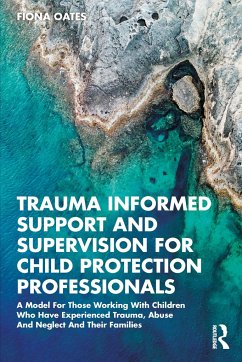This book presents a narrative approach to creating a supportive environment for health and human service practitioners who work with vulnerable children and their families-one of the most difficult and complex areas of practice.
People working in these environments are routinely exposed to violence and trauma and commonly experience symptoms of traumatic stress as a result. Traditionally, human service and health care service organisations have struggled to support practitioners who experience primary and secondary trauma in either a preventative context or post exposure. Using contemporary trauma theory, this book provides a trauma-informed support and supervision framework for supervisors and managers of practitioners that recognises the uniqueness of the practice field, the diversity of practitioners who undertake the work and the diversity of contexts in which they work.
It will be required reading for all human service and health professionals, including social workers, psychologists and nurses as well as teachers, counsellors and youth workers.
People working in these environments are routinely exposed to violence and trauma and commonly experience symptoms of traumatic stress as a result. Traditionally, human service and health care service organisations have struggled to support practitioners who experience primary and secondary trauma in either a preventative context or post exposure. Using contemporary trauma theory, this book provides a trauma-informed support and supervision framework for supervisors and managers of practitioners that recognises the uniqueness of the practice field, the diversity of practitioners who undertake the work and the diversity of contexts in which they work.
It will be required reading for all human service and health professionals, including social workers, psychologists and nurses as well as teachers, counsellors and youth workers.








